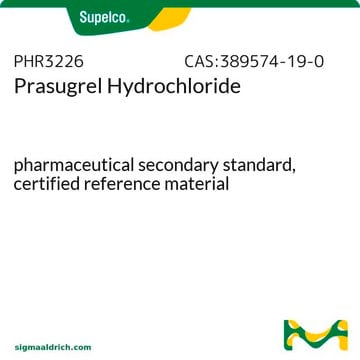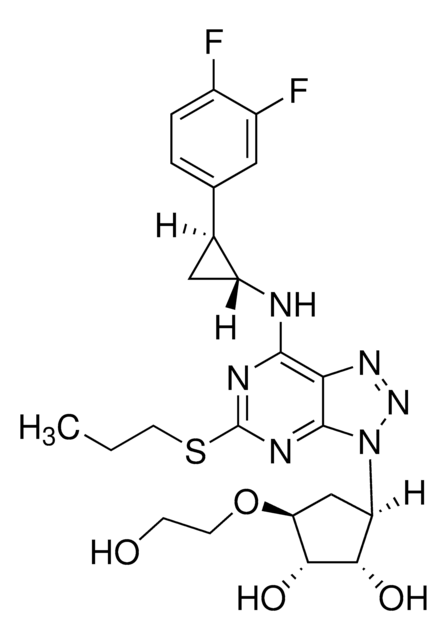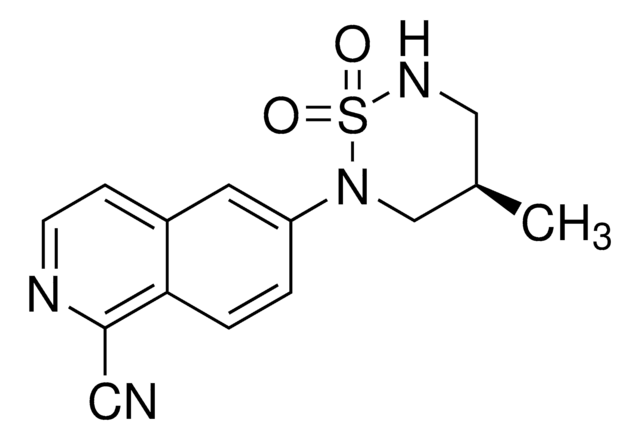SML0331
Prasugrel
≥98% (HPLC)
Sinónimos:
5-[2-Cyclopropyl-1-(2-fluorophenyl)-2-oxoethyl]-4,5,6,7-tetrahydrothieno[3,2-c]pyridin-2-yl acetate, CS 747, CS-747, Effient, Efient, LY640315
About This Item
Productos recomendados
Quality Level
assay
≥98% (HPLC)
form
powder
color
white to beige
solubility
DMSO: >5 mg/mL (warmed at 60 °C)
storage temp.
2-8°C
SMILES string
CC(=O)Oc1cc2CN(CCc2s1)C(C(=O)C3CC3)c4ccccc4F
InChI
1S/C20H20FNO3S/c1-12(23)25-18-10-14-11-22(9-8-17(14)26-18)19(20(24)13-6-7-13)15-4-2-3-5-16(15)21/h2-5,10,13,19H,6-9,11H2,1H3
InChI key
DTGLZDAWLRGWQN-UHFFFAOYSA-N
Gene Information
human ... P2RY12(64805)
¿Está buscando productos similares? Visita Guía de comparación de productos
Biochem/physiol Actions
Features and Benefits
Storage Class
11 - Combustible Solids
wgk_germany
WGK 3
flash_point_f
Not applicable
flash_point_c
Not applicable
Elija entre una de las versiones más recientes:
Certificados de análisis (COA)
¿No ve la versión correcta?
Si necesita una versión concreta, puede buscar un certificado específico por el número de lote.
¿Ya tiene este producto?
Encuentre la documentación para los productos que ha comprado recientemente en la Biblioteca de documentos.
Los clientes también vieron
Artículos
Surface receptors for extracellular nucleotides are called P2 receptors. Learn more about P2Y G protein-coupled receptors, GPCRs, and ionotropic P2 receptors (P2X ligand-gated ion channels, LGICs).
Surface receptors for extracellular nucleotides are called P2 receptors. Learn more about P2Y G protein-coupled receptors, GPCRs, and ionotropic P2 receptors (P2X ligand-gated ion channels, LGICs).
Surface receptors for extracellular nucleotides are called P2 receptors. Learn more about P2Y G protein-coupled receptors, GPCRs, and ionotropic P2 receptors (P2X ligand-gated ion channels, LGICs).
Surface receptors for extracellular nucleotides are called P2 receptors. Learn more about P2Y G protein-coupled receptors, GPCRs, and ionotropic P2 receptors (P2X ligand-gated ion channels, LGICs).
Nuestro equipo de científicos tiene experiencia en todas las áreas de investigación: Ciencias de la vida, Ciencia de los materiales, Síntesis química, Cromatografía, Analítica y muchas otras.
Póngase en contacto con el Servicio técnico








